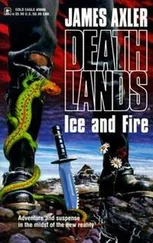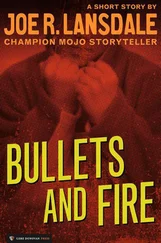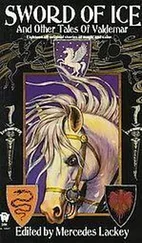Andrea Dworkin - Ice And Fire
Здесь есть возможность читать онлайн «Andrea Dworkin - Ice And Fire» весь текст электронной книги совершенно бесплатно (целиком полную версию без сокращений). В некоторых случаях можно слушать аудио, скачать через торрент в формате fb2 и присутствует краткое содержание. Жанр: Старинная литература, на английском языке. Описание произведения, (предисловие) а так же отзывы посетителей доступны на портале библиотеки ЛибКат.
- Название:Ice And Fire
- Автор:
- Жанр:
- Год:неизвестен
- ISBN:нет данных
- Рейтинг книги:5 / 5. Голосов: 1
-
Избранное:Добавить в избранное
- Отзывы:
-
Ваша оценка:
- 100
- 1
- 2
- 3
- 4
- 5
Ice And Fire: краткое содержание, описание и аннотация
Предлагаем к чтению аннотацию, описание, краткое содержание или предисловие (зависит от того, что написал сам автор книги «Ice And Fire»). Если вы не нашли необходимую информацию о книге — напишите в комментариях, мы постараемся отыскать её.
Ice And Fire — читать онлайн бесплатно полную книгу (весь текст) целиком
Ниже представлен текст книги, разбитый по страницам. Система сохранения места последней прочитанной страницы, позволяет с удобством читать онлайн бесплатно книгу «Ice And Fire», без необходимости каждый раз заново искать на чём Вы остановились. Поставьте закладку, и сможете в любой момент перейти на страницу, на которой закончили чтение.
Интервал:
Закладка:
Arendt, Singer, Freud, Darwin, Milton. I am profoundly loved.
I am trembling. Donne. Utterly female. Bought and saved.
*
I am afraid to eat, wet, in the restaurant, out of the rain,
trembling and wet: too carnal, too vulgar, too much the
mountain of thigh, I want the ether.
*
lt is, of course, not entirely this way. Somehow, Conrad reminds him of a high school teacher who had a boat in his sophomore year of high school; and Dostoyevsky reminds him
of someone he fucked three weeks ago in Denver— it was cold
there; and Milton reminds him of how misunderstood he was
when he was eighteen; and Zola’s J ’Accuse reminds him of
how he stood up to his parents and finally told them whatever;
and Mann reminds him of a lover who told him how hard it
was being German and of course he remembers the room they
were in and the sex acts that went before and after the desperately painful discussion of how hard it is; and Virginia Woolf reminds him of how depressed he is when he has to attend
sales conferences; and Singer reminds him of how his Jewish
mother reacted when he told her whatever; and Mozart reminds him of all the piano lessons he took and how brilliant he was before he decided to be brilliant now as an editor of
literature and also how he was unappreciated especially when
he taught English to a bunch of assholes in the sixties who had
no critical standards; and Freud reminds him of what it was
like to be such a sensitive child in school when all the boys
were masturbating and telling whatever jokes; and Jean Rhys
reminds him that he has been stalled on his own novel for
quite a while because of the demands of his job, which can be
quite pedestrian; and Djuna Barnes reminds him of a party he
went to in the Village dressed not in a dress like the other
whatevers but in a suit and didn’t that show whomever; and
Dickens reminds him of how much he abhors sentimentality
97


and the many occasions on which he has encountered it and
since he is in his late thirties there have been many occasions
and he remembers them all. And the Brontes remind him of his
last trip to England, which Maggie is really fucking up, which,
he tells me sternly, is going to hurt feminism.
And I wonder how I am going to survive being loved so
profoundly, like this. My palms do not sweat; they weep.
*
We went from the coffeehouse to the restaurant in the rain,
wet. I tried to slide along the broken New York sidewalks,
drift gracefully over the cracks, dance over the lopsided cement,
not hit the bilious pieces of steel that jut up from nowhere for
no reason here and there, not fall over the terrible people
walking with angry umbrellas into me. I tried to glide and
talk, an endless stream of pleasant yesses with an occasional
impassioned but do you really think. We stopped, we breathed
in the rain, breathless, in a crack I saw a broken needle, syringe,
I want it a lot these days, the relief from time and pain, I keep
going, always, away from it, he followed and we walked far,
across town, all the way from east to west, in the rain, wet,
cold, and I tried not to be breathless, wet, and the hair on his
lip glistened with lubrication and he strutted, his shoulders
sometimes hanging down, sometimes jutted back. They hung
down for the Japanese. They jutted back for Celine.
The cement disappeared behind us, a trail of rice at a
wedding, and stretched out in front of us, the future, our life,
our bed, our home, our earth, wet.
We went into the restaurant, wet.
*
A small cramped table, an omelette, a dozen cups of coffee, a
million cigarettes, one brutal piss after waiting all night, no
dessert, his credit card: dinner: I was tired enough to die. Hours
more of the canon, my heart. Except that we had reached the
end hours before, but still he went on.
We walked out, I wanted to go, off on my own, back to
myself, alone, apart, noiseless, no drone of text and interpretation, no more writers to love together as only (by now it was established) we could: just the dread silence of me alone,
with my own heart. On cement, in rain, wet.
I left him on a corner. Asked him which way he was going.
98


Would have gone the opposite. Extended my hand, kind but
formal, serious and sober, ladylike and gentlemanly, quiet but
taut, firm and final. He took it and he pulled me into his lips
so hard that I would have had to make both of us fall to get
away: and I didn’t scream: and he said he loved me and would
publish my book. Oh, I said, wet.
*
We left the restaurant and walked down a wide street full of
shops, cards, clothes, coffeehouses, restaurants, some trees
even, brick buildings, light from the moon on the rain. We
talked nervous clips, half sentences, fatigue and coffee, wet.
We crossed a small street. We stood in front of a blooming
garden, all colored and leafy, where a prison used to be, I had
been in it, a tall brick building, twelve floors of women, locked
up, a building where they took you and spread your legs and
tried to hurt you by tearing you apart inside. A building where
they put you in cells and locked that door and then locked a
thicker door and then locked a thicker door, and you could
look out the window and see us standing on that corner below,
looking like a man and a woman kissing under the moon in
the rain, wet. You could see the lights and the hookers on the
street corners and the literati fucking around too. You could
see a Howard Johnson’s when it was still there and gaggles of
pimps right across a huge intersection and you could hear a
buzz, a hum, that sounded like music from up there, up on one
of those floors inside that brick. You could see the people
underneath, down below, and you could wonder who they
were, especially the boys and the girls kissing, you could see
everything and everyone but you couldn’t get at them, even if
you screamed, and inside they spread you on a table and they
tore you up and they left you bleeding. And they tore me up.
And now it was a garden, very pretty really, and my honey the
publisher who I had just met was right there, in the moonlight,
wet: and the blood was flowing: he grabbed me and pulled me
and kissed me hard and held me so I couldn’t move and it was
all fast and hard and he said he loved me.
*
I am bleeding again on this corner; where there was a prison;
where a man has kissed me against my will; and will publish
my book, oh my love; and it is wet; and the cement glistens;
99


Интервал:
Закладка:
Похожие книги на «Ice And Fire»
Представляем Вашему вниманию похожие книги на «Ice And Fire» списком для выбора. Мы отобрали схожую по названию и смыслу литературу в надежде предоставить читателям больше вариантов отыскать новые, интересные, ещё непрочитанные произведения.
Обсуждение, отзывы о книге «Ice And Fire» и просто собственные мнения читателей. Оставьте ваши комментарии, напишите, что Вы думаете о произведении, его смысле или главных героях. Укажите что конкретно понравилось, а что нет, и почему Вы так считаете.












